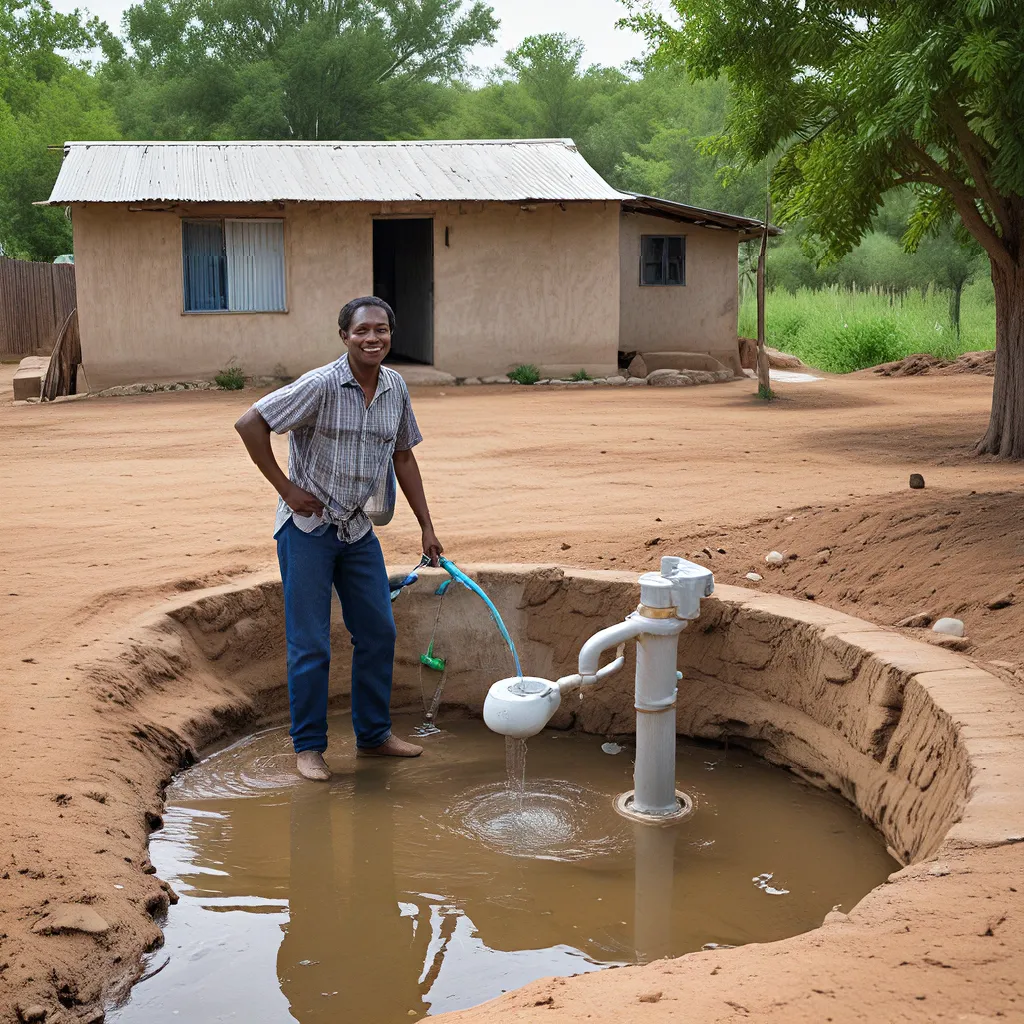
As someone who has lived in a rural area for most of my life, I know firsthand the challenges of accessing clean, reliable water and wastewater services. Growing up, we were always at the mercy of the weather, with droughts and floods affecting our ability to maintain a consistent supply. And let’s not even talk about the headache of dealing with outdated septic systems! It’s a problem that many communities like mine face, and one that often falls off the radar of those living in more urban areas.
But the good news is, there are innovative solutions emerging that are helping to bridge this water treatment gap in rural and remote regions. One such solution that has caught my eye is decentralized wastewater treatment – the idea of installing small-scale, localized treatment plants to serve specific communities rather than relying on large, centralized facilities.
The Limitations of Centralized Water Treatment
To understand why decentralized solutions are so important, we first need to look at the limitations of traditional, centralized water and wastewater systems. In many rural and remote areas, the distance from these central facilities can make connection to the main pipelines prohibitively expensive and impractical. The cost of running lengthy distribution lines and the sheer logistics of maintaining them often puts this infrastructure out of reach for smaller, more isolated communities.
And even when these communities do manage to get connected, the centralized model itself introduces its own vulnerabilities. As we’ve seen with catastrophic events like hurricanes, the failure of a single central plant can be devastating, leaving an entire region without access to clean water or proper sanitation. When that happens, the impacts can be far-reaching and long-lasting, compromising public health and the environment.
The Rise of Decentralized Wastewater Treatment
This is where **decentralized wastewater treatment** offers a game-changing alternative. By installing small, localized plants to serve specific communities or even individual facilities, we can overcome the logistical and financial barriers of centralized systems. These decentralized units are designed to be more resilient, with the ability to scale up or down based on the community’s needs. And if one unit goes down, the impact is limited to that particular area, rather than cascading across an entire region.
But the benefits of decentralized wastewater treatment go beyond just resilience. These systems also offer a level of **customization** that simply isn’t possible with large, one-size-fits-all central plants. By tailoring the treatment process to the unique water quality challenges of a specific location, we can ensure that the water and wastewater meet the necessary safety standards without wasting resources on unnecessary treatment steps.
Unlocking the Potential of Water-as-a-Service
Of course, the challenge for many rural and remote communities is that they often lack the technical expertise and financial resources to design, build, and operate their own decentralized wastewater treatment plants. That’s where innovative business models like **Water-as-a-Service (WaaS)** come into play.
With a WaaS contract, the water treatment provider takes on the responsibility of installing, operating, and maintaining the decentralized plant on the community’s behalf. This not only eliminates the need for upfront capital investment, but it also ensures that the system is being managed by a team of water professionals who can optimize performance and ensure compliance with all relevant regulations.
One of the key advantages of WaaS is its **affordability**, making safe water and proper wastewater treatment accessible to communities that might otherwise struggle to afford these essential services. Rather than having to shoulder the entire cost of the plant and infrastructure, customers only pay for the water they use or the wastewater they have treated. This predictable, pay-as-you-go model can be a game-changer for underserved regions.
Sustainable Water Management Practices
But the benefits of decentralized wastewater treatment and WaaS go beyond just cost and accessibility. These systems also have the potential to promote more **sustainable water management practices** within the communities they serve.
By designing the treatment process to handle the specific water quality challenges of a particular location, we can minimize waste and optimize the use of valuable water resources. And with the ability to recycle and reuse treated wastewater onsite, we can reduce the demand on scarce freshwater supplies – a critical consideration in many drought-prone rural areas.
Moreover, the long-term nature of WaaS contracts gives the water treatment provider a vested interest in the success and sustainability of the community they serve. This can drive the implementation of innovative technologies and best practices that not only improve water quality but also promote responsible water usage and environmental stewardship.
Bringing Safe Water to the Most Vulnerable
As I reflect on my own experiences growing up in a rural area, I can’t help but feel a sense of excitement about the potential of decentralized wastewater treatment and WaaS to transform the lives of people like me. No longer will we have to worry about the reliability of our water supply or the safety of our wastewater disposal – these essential services can finally be within reach, even in the most remote and underserved communities.
And the best part is, the technology and business models are already here. Companies like Alpha Wastewater are leading the charge, partnering with rural and remote communities to provide customized, resilient, and sustainable water and wastewater solutions. By leveraging decentralized systems and WaaS, they’re able to bring the benefits of modern water treatment to the places that need it most.
So, if you’re like me and have been frustrated by the lack of reliable, accessible water and wastewater services in your community, take heart. The future is bright, and the solutions are out there, ready to be embraced. All it takes is a little **innovation**, a **commitment to sustainability**, and a **partnership with the right water experts** to make safe, clean water a reality for even the most remote and vulnerable populations.